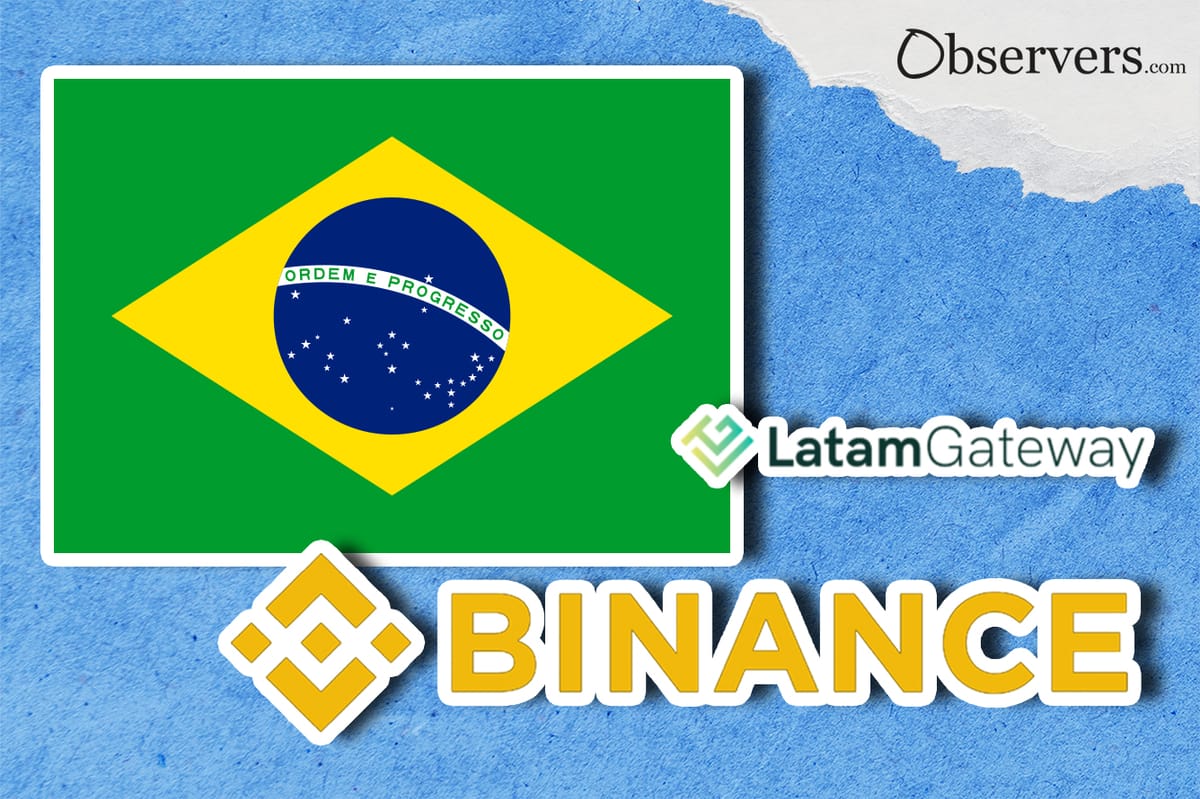
Binance’s partnership with Latam Gateway, its payment processor partner in Brazil, is heading in the right direction. On May 19, the Central Bank of Brazil approved the company to operate as an electronic money issuer in the country.
In Brazil and abroad, the crypto exchange giant has been going through some turbulent times due to ongoing legal battles and toxic relationships with national partners.
As Binance loses ground, especially in the Anglo-Saxon world, will Latin American markets allow the exchange to keep the dream alive?
On May 19, the Central Bank of Brazil (BCB) approved a license for Latam Gateway to act as a payment institution as an electronic money issuer, qualifying the company to manage prepaid bank accounts.
Binance’s payment partner in Brazil opened its doors in Paraná in 2017. Until last year most of its clients were international gaming companies such as Moedas and Game Hollywood and it had no crypto enterprise clients.
That changed when in June 2022, Brazilians’ right to withdraw and deposit fiat currency on Binance via PIX, the most popular payment option in the country, was halted for 20 days. At the root of this issue was Binance's lack of compliance with BCB guidelines that asked PIX providers to implement know-your-customer (KYC) requirements.
The crypto exchange blamed Capitual, its local gateway partner at the time, for not enabling them to make the necessary changes, so it terminated their contract and announced Latam Gateway as a new partner.
Meanwhile, this has given rise to a bitter legal dispute between the two companies, as Capitual states that Binance knew and, like other clients, could have implemented the changes required by law.
How this dispute plays out is now down to the Brazilian courts to decide, but so far justice seems to be favoring the country’s multi-currency bank.
This is not the only instance of Binance having troubles with a local partner for its shortcomings in abiding by legal standards.
Just last week, Cuscal, Binance payment provider partner in Australia, stopped granting access to AUD deposits with PayID. Cuscal blamed the move on the impact of “scams and fraud”.
In March, UK clients lost the ability to make deposits and withdrawals in pounds sterling after Skrill Limited, Binance’s British banking partner, terminated its contract.
In Brazil, everything seems to be going fine for now.
Binance has stated that Brazil was one of its most important markets. Last month Binance announced a partnership with Mastercard to offer a prepaid crypto credit card, and earlier this year opened two offices, one in São Paulo and another in Rio de Janeiro.
The country is rapidly adopting digital payments and making itself a crypto-friendly destination. Chainalysis' Crypto Adoption Report of 2022 puts Brazil as the 7th country in the world for cryptocurrency usage, while research by Mastercard found that 49% of all Brazilian adults have used cryptocurrencies at least once in their life, 8 percentage points above the global average.
Nonetheless, in common with many places where it operates, Binance is under investigation by Brazilian authorities.
The case against it states that Binance allowed users to access the futures options market after the government expressly prohibited it.
Binance's dominance over the crypto exchange market has been taking hit after hit.
Earlier this month, it closed operations in Canada because of the country’s new rules on crypto exchanges, and it seems to be constantly under fire from the U.S. authorities.
Latam Gateway payment institution approval is good news for the crypto exchange, but a third-party victory is not a Binance victory.
If the company wants to survive in an increasingly competitive and increasingly legislative market, it must get its act together.

